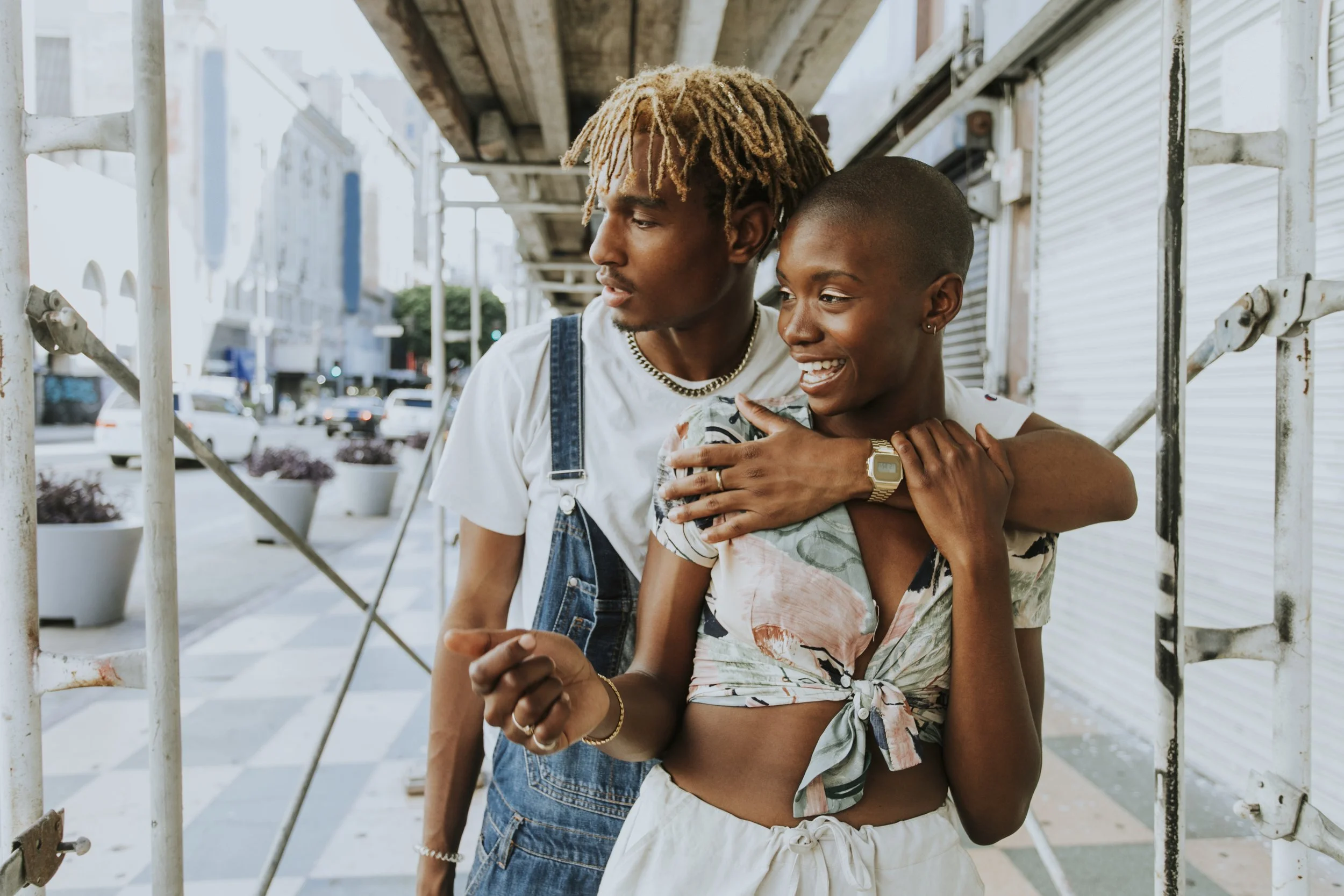Letter from the Editor: "What If" On Re-imagining Sustainability Part 1
Entering this work six years ago, a space that had been overrun by white voices re-shaping or attempting to re-define sustainability, I had created versions of the concept that don’t look anything like how I view sustainability today.
I boxed out my own experiences as a Black American, and what that meant for my family growing up the way we did in South Dallas, Texas. Remembering moments like neighbors lending sugar, bread, eggs, sharing with one another whatever was needed, encouraged me to make more room for these examples of sustainability within the larger, ongoing conversations.
After reconnecting with sustainability as survival — how I knew it long before the term was trending the way it is — a doorway into deeper and evolved, yet simpler versions of sustainability emerged. I have found myself thinking more about it as it relates to the art of how we care for ourselves, how we parent our children, and how we share with our communities.
“I have found myself thinking more about it as it relates to the art of how we care for ourselves, how we parent our children, and how we share with our communities.”
What if we applied everything we advocate for in our work in sustainable fashion to our personal lives differently? For instance, the concept of not taking more than we need (we can only be the judge of this) could easily be applied when shop for groceries, or anything really. Being intentional with how and what we get, instead of from a scarcity “stock up” mindset that has poisoned our society on so many levels.
We know capitalism has created an environment of competing for resources, but when we decide to be honest about what we need—what’s necessary and how much of whatever is truly needed—we challenge capitalism and the lie that there can never be enough to go around.
And, what if we view caring for ourselves in the same ways that we aspire to care for the planet? Knowing that we can give more fully when we’re mindfully nourishing mind, body, and soul first. What if we put more stock into building relationships with an understanding of respect and reciprocity; co-creating environments that are truly healthy for us to thrive?
At this point, I can’t imagine working on external solutions any further without an honest reckoning that we are what makes sustainability happen—and doing our very best to embody all that it represents for us now and for the future—is how we’ll create the shift.
This is especially why I spend more time rethinking how I interact with and parent my six-year-old. How do we establish boundaries within our mother-child relationship? Am I respecting his boundaries; do we have conversations where his voice gets to be amplified? How should I address behaviors that are not acceptable in our home? It’s been a task, but unlearning past parenting ways and embracing new ways has felt revolutionary.
I see this being a vital piece in the overall sustainable future we speak of so often, because my belief is that young children represent so much of what is pure in humanity and we should tap into that frequency of what it means to guide them and nourish what’s already there. It shouldn’t be about changing them, nor pushing them to conform to society’s current standards. Instead, it’s worth exploring how we can learn from them, build with them, and encourage mindfulness and critical thinking.
Think of gardening with our children as a grand example for navigating life. When I plant seeds with my kid, there is an opportunity to form our own deep connections with what it means to be respectful, be attentive, and be patient. Gardening offers a lesson in reciprocity as we observe giving and receiving, without an entitlement as to what is owed, but through a growing understanding of partnership.
It’s really clear that sustainability and all its levels and all its versions have to be put into practice in a way that makes more space for a renewed collective conscience—one where sustainable and ethical action flows from us organically.
“
You don’t have to know all the answers
in order to be able
to press for a vision.
”
With love & gratitude,
About the Editor
The founder and editor-in-chief of ESJ Magazine, Katie has been working to make sure representation exists within the sustainable fashion space, and that real conversations that lead to accountability and action are happening in fashion. Over the past couple of years, her work with the magazine has expanded to create a bigger platform for Black women and femmes, women of color artists and educators to take up space in ethical and sustainable fashion.













